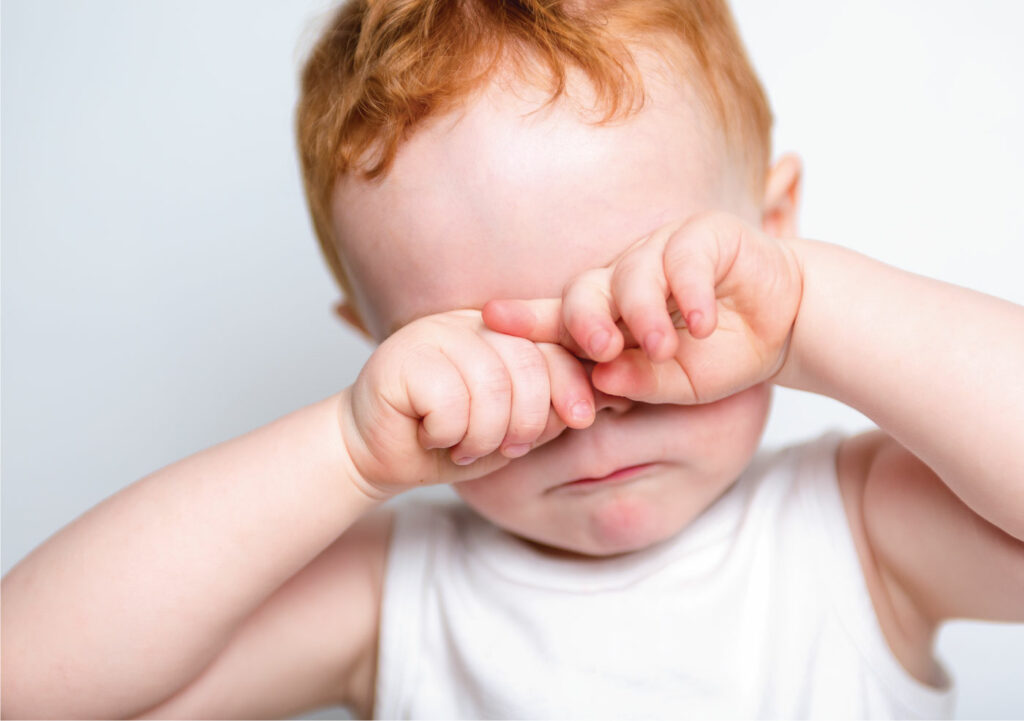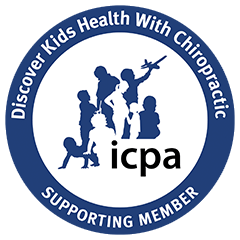Dr. Elyssa:
Welcome to episode three of balancing holistic mamas. I am Dr. Elyssa Wright and I am so excited to be back with you guys today. This week’s episode is all about anxiety in our children, and I have a special guest Mama Poff is back again. My friend, Jen is here to share her experience of how she realized chiropractic care and anxiety go hand in hand.
Mama Poff:
Well, Hi, Dr. E thanks for having me again. I don’t know if anybody heard the first episode, but you definitely need to go back and listen to the, what is chiropractic care. I brought my daughter into you because she was dealing with a lot of allergy issues. You taught me about the sinus drain and clearing the lymph nodes, and that really helped her move forward and with a lot of the issues she was having. And in one of those treatment sessions, when I brought her in and at the time she was like first grade, I think you noticed some symptoms, physical symptoms of her that I never would have connected could have been supported by chiropractic care. And at that time she was just licking her lips, so fiercely that they were just raw and red. I was having a lot of trouble with her at school, chewing pencils, so bad that the metal was gone off of them. And some nail biting, you know, a lot of tactile fidgety type of things she was doing. And you called me out and said that you could help her with that stuff.
Dr. Elyssa:
Yeah. So a lot of the times, it’s all about, you know, how we learned about chiropractic from our family and from outside sources and we think chiropractic equals pain and it equals so much more. So when I see little kiddos in my office, always looking for signs that may be a part of their nervous system, is working a little over time and struggling to kind of incorporate that into the nervous system. So the ways that I see it are through the senses, maybe you have a little one that walks into a store and they go, Oh my gosh, mommy, I hate the smell I need to get out of here. Or you have a little one like your daughter who is picking and biting and licking and chewing. Those are common to kind of see the tactile mixed in with the oral and the tastes. Maybe they’re a picky eater and only like certain textures, or maybe you can’t get them to stop touching things. And they’re walking through a store, touching every cereal box down the aisle, or they’re outside and they want to touch the leaves and the grass and the pavement and the, and the, and the, and the…
Mama Poff:
If we’re talking about anxiety with kids, I mean, I need to always touch something busy-body-type of behavior that you’ve described. But another layer of that is at least some of the things that I see in my kids, which now today they’re 13 and nine, but both of them when they’re bored when everything is static, that’s when all those things come into play again. And things like my nine-year-old starts picking at her face to the point where she’ll open up scabs and get little bloody marks. And then now that’s a progression because you feel the scab, but I noticed she also does it in school. She has to wait for the teacher to catch everybody else up. She gets bored and then it starts to happen. And through COVID and being home, I can see those things even more and I can pinpoint when they’re happening. I think it’s this anxiety again. So what can I do to help them?
Dr. Elyssa:
So one is seeing if you can get to the root cause of the anxiety, and I’m going to hunt down a special guest to talk about this more. I do have a friend who is a therapist to really figure out positive ways to communicate with your children on all of these issues. So that will be coming up in a few weeks, but one is to have the opportunity to have open dialogues, to see if you can pinpoint where the anxiety is living and then to, from a functional medicine and chiropractic perspective, which is where I shine is to start to look at what they’re eating. A lot of the times when there’s more boredom, we actually go to more sugars. And there is a connection between our gut and our brain. And when we’re feeding our gut, a bunch of sugars we’re actually affecting how our brain is functioning, which is just going keep this boredom and this anxiety loop playing in the body.
Mama Poff:
That makes sense. And I remember you saying at the time when my oldest was younger and you’re like, Oh, she’s stressed. She has anxiety. I’m like, what are you talking about? She’s in first grade, what does she have to stress about? And that’s when you said it was the stress of the gut.
Dr. Elyssa:
Gotcha. Yep. And there are a lot of different paths to go with the gut and we’re going to keep it quick and simple here. So some of the biggest things you can do to help that on a base level is to look at how much gluten you’re putting in, gluten breaks down to sugars, and it can feed bad bacteria in the gut that keep this anxiety wheel spinning. So looking at your grains, how much pasta are we eating? How much mac and cheese are we eating? How much, Oh, what are the other good things,
Mama Poff:
cookies, French fries, chicken nuggets…
Dr. Elyssa:
So how much of that is going on in your household? And I always start small. Can you take grains out of one meal? So if you notice anxiety is highest after lunch, then during lunch, try to have a grain-free meal and see what the difference is. If it’s not grains, the next one on the list is always dairies. So the same thing, how much milk, how much cheese, how much ice cream, how much cottage, cheese sour, cream yogurts. Once again, these are a lot of really simple things that we pick up off the shelf because they’re quick and easy for our kids and the same thing with dairies. So check-in and go, okay, they’re usually great when they wake up and they eat breakfast and then they crash and then they have a spasm look at breakfast and maybe pull out the milks and see what type of difference you can make.
So those are just simple tests you can do. If you notice something it’s also a good time to reach out and get support to zero in a little bit more. But I like to come up with some quick and easy things to start to get an idea of what you can impact, where the other really good thing to help heal. The gut is looking for probiotics and prebiotics. So if you check out my website, you’ll see there’s a little button to Wellevate. That’s where you can find all of my favorite probiotics and prebiotics. And you might be wondering what’s the difference between a pro and a pre so probiotics give your gut bacteria. So the best time for those is usually right after you took an antibiotic to feed your body with good bacteria. Again, prebiotics, give your body good food.
So that way the good bacteria that you already have can thrive. Each one of us have a different gut. And we each have our own special, that is unique to us. So by feeding, what we already have will help make us healthier. Gut is usually one place that I start. When I see little kiddos, we get adjusted to help calm that nervous system down, to bring it more into a restful place, to just take the stress off the nervous system, to help with anxiety there.
Number two, we look at the gut and see what are those fuel issues that we need to zero in on, and how can we improve the overall health of the gut? And then the last piece, which is the fun piece, in my opinion, is what are the things you can do to help your kids heal and to redirect that boredom?
Mama Poff:
That’s true. So I remember back with my child, you did some adjustments in the office, you prescribed her a natural supplement to help ease the gut while I got the food menu under control. And then we also, you also suggested to us fidgets and what was awesome was when I talked to the teacher simultaneously of treatment with you and to pinpoint like, even in her mind of when things were happening, she agreed that fidgets would be the right thing to do within that class. And bringing the teacher aware to it. It helped make it acceptable in the class, you know, cause she didn’t want to get her in trouble playing with a toy in class, but there was a local teacher store that we could go to. And, um, we grabbed, it was a cool thing. It was like at the end of the pencil. And it was like a ball in a little, a little bag to just keep pushing around. But between treatment supplement menu and fidgets, it really helped get it under control.
Dr. Elyssa:
Yep. And fidgets are the part where your kids could become part of that conversation. Um, cause every little one is going to have a little different piece of a system. So I always recommend talking to the teachers, letting them know and seeing which class it is and you know, we’re in the day like maybe their final morning and then at 1:00 PM they start to fade and that’s where their focus leaves. So having that open conversation helps to zero in on what the biggest piece is and to make sure everybody’s on the same page and those fidgets come into play with the same things of like, okay, if they’re a nail biter, then you need something tactile in their hands. So maybe it’s taping a piece of fabric underneath the desk that has some different textures. Maybe it’s a little stuff, squeezy toy, something tactile. Um, if that’s a lot of picking face stuff, then you know, it might be a smell. It might be a taste and the teacher’s stores are great resources to go in because this is a popular thing now. So there’s all these different avenues and options that, you know, you figure out what works for your kid and zero in on where to send that energy to. So that way they’re not just internalizing this anxiety day in and day out.
Mama Poff:
I’m sure there’s an essential oil involved in that stuff too. When you talk about scents and things that maybe they could just put on their temple or something like that.
Dr. Elyssa:
Absolutely there are roller balls that have calming sense, or maybe it’s not a calming, maybe it’s a focus or an energizing, it’s all based on where your child is and what are the different sense that really encourages and wake up them and wake up the brain. That’s awesome. Cool. So that is the quick, I won’t assess necessarily say easy, but that’s just a quick download on littles and anxiety and things to look out for it, with your littles, especially during this time.
Mama Poff:
We all have more stress and opening up that conversation with our kids about stress and well, I think what’s really cool about this conversation is that, you know, we’re seeing in social and on TV so much about mental health that I think it’s a great path to explore for holistic mamas that maybe not want to open up that door yet. Like I know for myself, I feel like if I don’t find the right mental health provider, it could be their quick answer of giving her some kind of neuro med. And I really don’t want to go down that path unless it’s absolutely necessary.
Right. But to know that there are alternative holistic options to help ease the mental strains that are not only, yeah, there’s emotional things going on, but it could be it’s the gut and physicality of things too, that we can help with. And it’s part of parenting right of navigating for, you know, I know when your daughter was a new parent and you’re navigating uncharted courses and to figure out, okay, do I call the chiropractor? Do I call the pediatrician? Do I call the therapist? And, and it’s a lot of questions and answers and uh, investigating and observations. And I, and I think this conversation today is giving parents another pathway to look at, to help bring solutions to their children.
Dr. Elyssa:
Yep, absolutely. And the physical component of anxiety is the one that I always look to give action steps to my parents, like something to try. And when you look at the physical component, like try no grains, see how it goes, try no milk, see how it goes, try a fidget. They’re just quick and easy things to see what type of change you might be able to get. And if not, you know, with all of this stuff is to pay attention to your child and pay attention to your gut. And if you think they need help, you know, work with your doctors, work with your teachers, work with your mental health providers and make sure that you do the best for you, your family and your littles.






